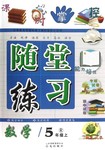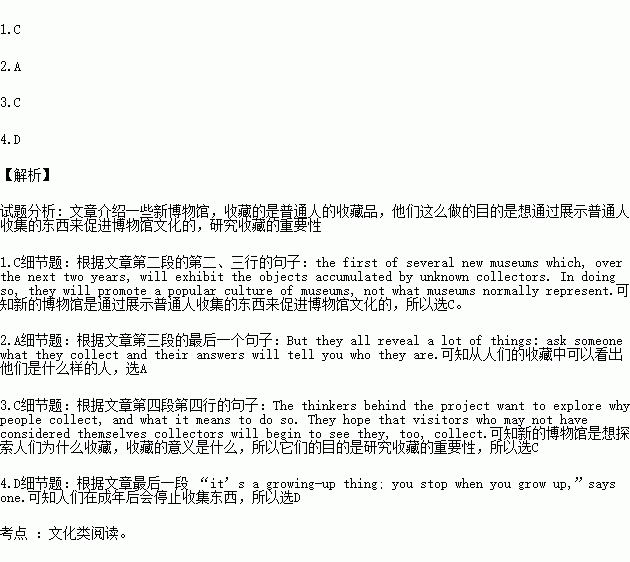题目内容
You are the collector in the gallery of your life. You collect. You might not mean to but you do. One out of three people collects tangible things such as cats, photos and noisy toys.
These are among some 40 collections that are being shown at “The Museum Of”—the first of several new museums which, over the next two years, will exhibit the objects accumulated(积累)by unknown collectors. In doing so, they will promote(推动)a popular culture of museums, not what museums normally represent(代表).
Some of the collections are fairly common—records, model houses. Others are strangely beautiful—branches that have fallen from tree, for example. But they all reveal (显露)a lot of things: ask someone what they collect and their answers will tell you who they are.
Others on the way include “The museum of Collectors” and “The Museum of Me.” These new ones, it is hoped, will build on the success of “The Museum Of.” The thinkers behind the project want to explore why people collect, and what it means to do so. They hope that visitors who may not have considered themselves collectors will begin to see they, too, collect.
Some collectors say they started or stopped making collections at important points: the beginning or end of adolescence ( 青春期 )—“it’s a growing-up thing; you stop when you grow up,” says one. Other painful times are mentioned, such as the end of a relationship.
1.How will the new museums promote a popular culture of museums?
A. By collecting more tangible things.
B. By correcting what museums normally represent.
C. By showing what ordinary people have collected.
D. By accumulating 40 collections two years from now.
2.What can be learned about collectors from their collections?
A. Who they are.
B. How old they are.
C. Where they were born.
D. Why they might not mean to collect.
3. Which of the following is an aim of the new museums?
A. To help people sell their collections.
B. To encourage more people to collect.
C. To study the importance of collecting.
D. To find out why people visit museums.
4.According to the last paragraph, people may stop collecting when they _______.
A.are in their childhood
B. feel happy with life
C. are ready for a relationship
D. become adults
 开心蛙状元作业系列答案
开心蛙状元作业系列答案 课时掌控随堂练习系列答案
课时掌控随堂练习系列答案 一课一练一本通系列答案
一课一练一本通系列答案
